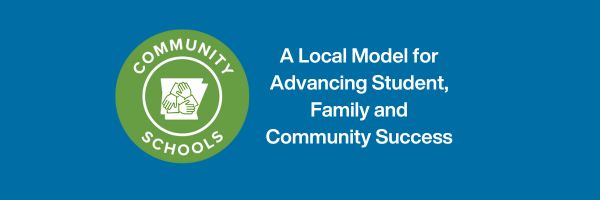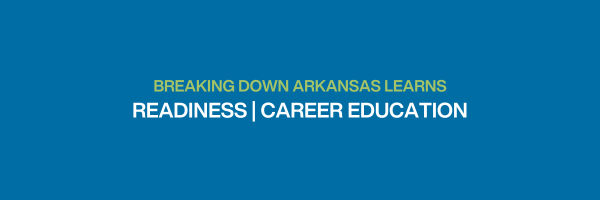Arkansas LEARNS | Literacy
Earlier this year, Forward Arkansas released its State of Education in Arkansas 2023 report. The report represented the accumulation of data, community voice and best practices to provide an assessment of the current state of Arkansas education and identify opportunities for dramatic improvement. Following the release of the report, the state of Arkansas enacted the LEARNS Act aimed at addressing many of the education challenges we face and improving outcomes for students. The Act is wide-ranging, impacting many aspects of our education system and includes several core priorities highlighted within the State of Education 2023 report. In an upcoming blog series, we will spotlight these priorities and the related policies contained in the new law. Our goal is to continue to inform Arkansans about our current state of education and how policy changes enacted through LEARNS will impact Arkansas education and our students.
Headline: We believe the focus on literacy within Arkansas LEARNS represents a major opportunity for our students and our state. The literacy focused policies in LEARNS directly reflect policies that other states have used, like Mississippi, to dramatically increase reading levels over the last 10 years. However, many strategic questions remain. The impact of LEARNS will be dependent on data and research informed rulemaking and effective implementation at both the state and local levels.
State of play: In our State of Education 2023 report, we found that despite slight academic improvements leading up to the pandemic, overall student academic outcomes in Arkansas were severely lagging before COVID-19 and worsened during pandemic disruptions.
- Less that 40% of students met or exceeded expectations in the ACT Aspire reading test in the 2021-22 academic year
- Reading scores in the SE and the SW regions of the state are far behind other regions
- Minority, ELL and economically disadvantaged students find themselves way behind the pack in reading
A little history: The LEARNS Act is not the first time Arkansas has focused on literacy. In 2017, Arkansas passed the Right to Read Act, and soon after launched the Reading Initiative for Students Excellence (R.I.S.E) with subsequent amendments to the Right to Read Act in 2019 and 2021.
The L in LEARNS is for Literacy: LEARNS seeks to strengthen our literacy outcomes through the following:
- Identifying Struggling Readers
Using a high-quality literacy screener for K-3 students and informing parents of the results - Targeting Interventions
Retaining 3rd grade students who do not meet the 3rd grade reading standard or possess a good cause exemption
Providing literacy coaches to K-3 teachers in schools with a D or F accountability rating
Supporting K-4 students who are not proficient in reaching with individual reading plans
Establishing a $500 per student literacy tutoring grant program for K-4 students who are not proficient in reading - Better Preparing Aspiring Teachers
Auditing educator preparation programs of their implementation of the Right to Read Act
What we are watching: LEARNS creates conditions for change, but the depth of understanding, buy-in and implementation will determine the impact on our students, schools and communities. Within all of the coming changes, our eyes are on three areas.
- Communication of retention policy: It's imperative that we determine and clearly communicate what the retention policy is and what it is not. In Mississippi, clearly communicating and getting buy-in at the local level was a critical piece of their success.
- Literacy coaches: Let's not lose sight of the who, what and the how. Who: it will be easy to try and leverage good teachers as literacy coaches, but not every good teacher will make a good coach. And we already have a teacher shortage in many parts of the state. What: lets expect to train all literacy coaches in the science of reading, using the same training. Coherence in training will go a long way. How: as coaches, sometimes buy-in comes after teachers see the outcomes of changed behavior. Remember, changed behavior leads to changed outcomes, which leads to buy-in.
- District and School Capacity: Educators will need support as they take policy to practice. The new literacy policies will ask a lot of educators who are already stretched thin. Also, literacy is just one among many big pieces of LEARNS that will have huge implications for school resources and educator capacity. In addition to more support on literacy instruction, schools will need creative strategies to more effectively use the funding, people and time that they have.
The bottom line: The literacy component of the LEARNS act aligns with many of the opportunities for Arkansas identified in the 2023 State of Education report , which are based on recent data, best practices from other states, and the voices of over 3,500 Arkansans. However, similar to the Right to Read Act, policy change is the first step. What happens next – building the buy-in of district leaders, educators and community members and supporting effective implementation in ways that address local needs – will determine the level and pace of progress for students.
 Malachi Nichols
Malachi Nichols 

